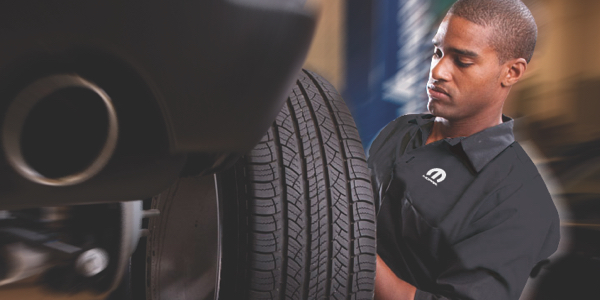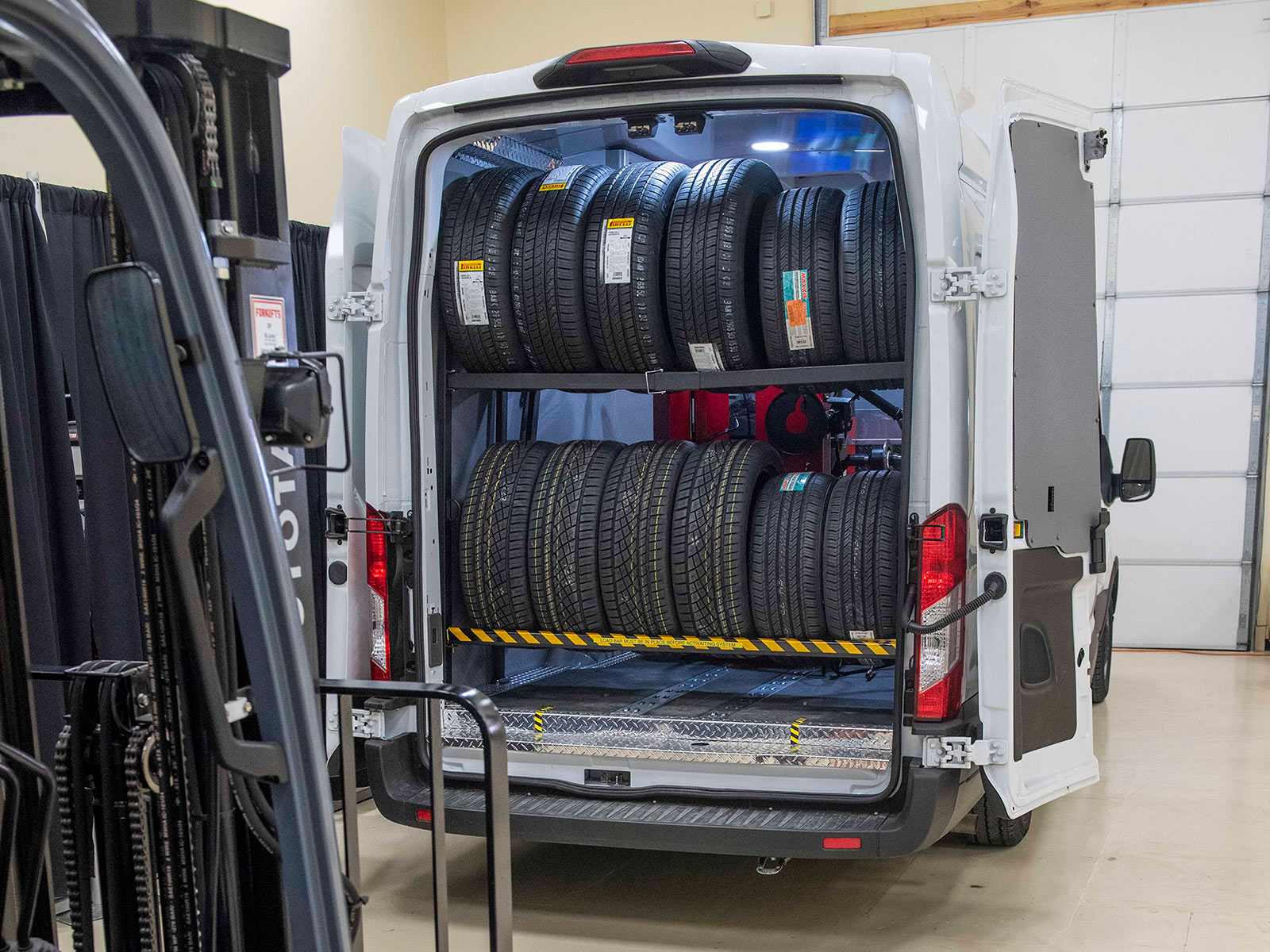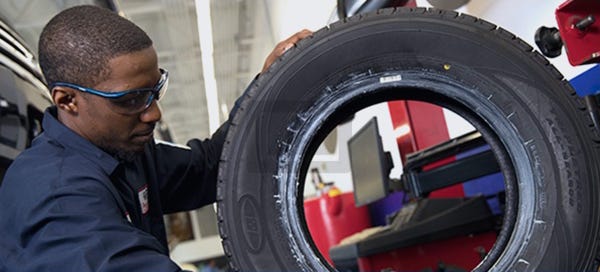Morris Tires: Where GMC Tire Service Satisfies Quality
Morris Tires: Where GMC Tire Service Satisfies Quality
Blog Article
Tire Service: The Impact of Weather Problems
When it comes to making sure ideal performance and safety and security on the road, recognizing the influence of weather problems on tire service is essential. GMC Tire Service. In this conversation, we will certainly explore the elaborate connection in between weather conditions and tire solution, shedding light on the relevance of weather-specific tire maintenance practices and considerations.
Heat and Tire Performance
When exposed to heats, tires experience adjustments in efficiency that can substantially influence vehicle safety and handling. The warm created from extended driving or hot weather condition problems causes the tire rubber to soften, causing decreased tread life and increased wear. As the rubber ends up being softer, the tire's grip when traveling diminishes, impacting braking distances and general traction. In severe situations, too much warm can also create tire blowouts, presenting a severe safety and security risk to the automobile and its occupants.

Cold Climate Impacts
Winter conditions can have a considerable effect on tire efficiency and safety. As temperature levels decrease, tire rubber can harden, resulting in reduced grip on icy or snow-covered roads. In cold weather, tires may likewise lose air stress extra quickly, which can impact dealing with and fuel effectiveness. In addition, cool temperatures can create tire sidewalls to stiffen, raising the danger of damages from pits or various other road risks.
To mitigate the impacts of chilly weather condition on tires, it is crucial to routinely examine tire pressure and inflate them to the manufacturer's suggested levels. Utilizing winter or all-season tires developed for winter problems can likewise improve grip and grasp on icy or snowy roads. Proper tire maintenance, including regular inspections for wear and damage, becomes a lot more critical throughout cooler months to make certain optimum performance and safety.
Rainy Issues Effect
Throughout wet conditions, tire efficiency and security can be considerably influenced by the wet road surfaces and lowered exposure. The walk pattern of tires plays a crucial function in preserving grip on damp roadways. Tires with worn-out footsteps are a lot more prone to hydroplaning, where a layer of water develops up in between the tire and the road surface area, bring about loss of traction. To combat this, motorists need to consistently check their tires for appropriate tread depth and consider investing in tires especially developed for damp problems.
Furthermore, stormy weather can also reduce exposure, making it testing for drivers to see the roadway ahead plainly (GMC Tire Service). In such problems, it is important to adjust driving rates as necessary and keep a safe following distance to enable sudden quits. Correctly filled with air tires can likewise aid in preserving control on damp roads by providing much better handling and grasp
Snow and Tire Safety
When driving in snowy conditions, having the appropriate tires can make a significant distinction in security Discover More Here and performance. Winter season tires are created with special rubber compounds and tread patterns to give much better traction on snow and ice contrasted to all-season tires.

Additionally, motorists must consider setting up tire chains in severe snowy conditions. Tire chains offer additional grip by grasping the snow and ice, enhancing stability and control. Nevertheless, it is essential to comply with producer instructions when using and setting up tire chains to avoid damage to the tires and vehicle. By selecting the appropriate tires, keeping proper inflation, and considering additional grip aids like tire chains, drivers can improve their safety when navigating snow-covered roads.
Weather-Related Tire Maintenance
When encountered with different climate condition, proper tire upkeep comes to be a vital element of lorry safety and security and performance. Weather-related tire upkeep encompasses an array of methods targeted at ensuring optimal tire function and durability in various Full Article weather situations. One crucial aspect of weather-related tire upkeep is tire pressure law. Varying temperatures can cause tire stress to vary, affecting grip and fuel effectiveness. On a regular basis examining and adjusting tire pressure according to maker suggestions is important for secure driving in changing weather. Additionally, tire walk depth plays a significant role in managing different climate elements. Tires with adequate step depth offer far better grasp on damp or icy roadways, minimizing the risk of hydroplaning or skidding. When tread wear gets to a certain depth is vital for keeping traction and security in negative weather, checking tire step on a regular basis and replacing tires. By prioritizing weather-related tire upkeep, chauffeurs can enhance security, enhance car performance, and extend the life-span of their tires.
Final Thought
In verdict, climate problems have a significant influence on tire efficiency and security. From warmth influencing tire stress and use to chilly weather condition lowering grip, it is crucial to consider the weather condition when find more information preserving and utilizing tires.
In this discussion, we will check out the elaborate connection in between weather problems and tire solution, dropping light on the relevance of weather-specific tire maintenance practices and considerations.

Report this page